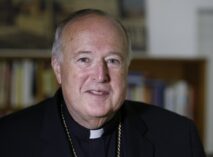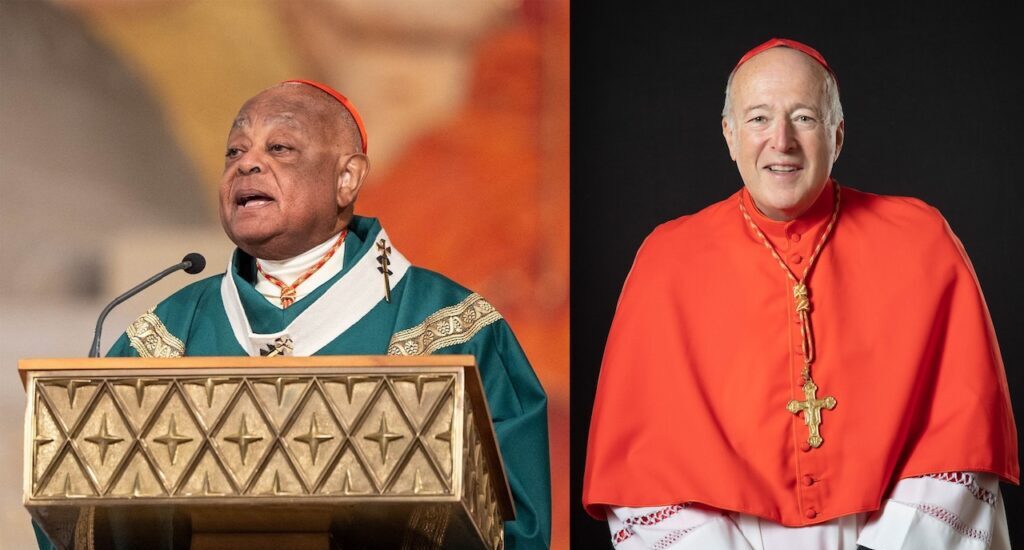“Well now, we must all become disruptors,” the bishop said, referencing the use of military force to deport undocumented migrants and the portrayal of refugees and Muslims as enemies.

In the political area, McElroy has been most outspoken on the subject of immigration.
Speaking at an interfaith prayer vigil in front of the U.S. federal courthouse in downtown San Diego in 2021, McElroy decried Congress’ failure to create paths to legalization for some of the U.S.’ 11 million undocumented migrants.
“We can’t stand by anymore and watch our political processes — broken as they are — destroy the dreams and the hopes of the refugees and the immigrants who have not only come here and lived here but have helped build our nation and make it better,” he said.
He is also a frequently-heard voice in the “Eucharistic coherence” debate, in which he has often criticized what he sees as, in the U.S., the prioritization of abortion over other social concerns, such as the death penalty and care for migrants and the environment.
In recent years, McElroy has also asserted that to deny holy Communion to pro-abortion Catholic politicians is to weaponize the Eucharist for a political end.
In a May 5, 2021, essay, he decried what he called “a theology of unworthiness” to receive the Eucharist, whereby those who practice it focus too strongly, in his view, on discipline.
McElroy also supports women deacons for the Church and is a vocal supporter of LGBT-identified Catholics.
Born in San Francisco on Feb. 5, 1954, McElroy grew up in San Mateo County. He was ordained a priest in 1980 and served as an auxiliary bishop to San Francisco’s Archbishop Salvatore Cordileone starting in 2010.
In 2015, Pope Francis tapped McElroy to lead the San Diego Diocese. He was elevated to the College of Cardinals by Pope Francis in an August 2022 consistory after undergoing a successful coronary bypass surgery the year prior.
Before starting seminary, McElroy studied history at Harvard University, going on to also earn a master’s degree in American History from Stanford University.
After his ordination as a priest, he also earned a licentiate (similar to a master’s degree) in sacred theology and doctorates in moral theology and political science.

